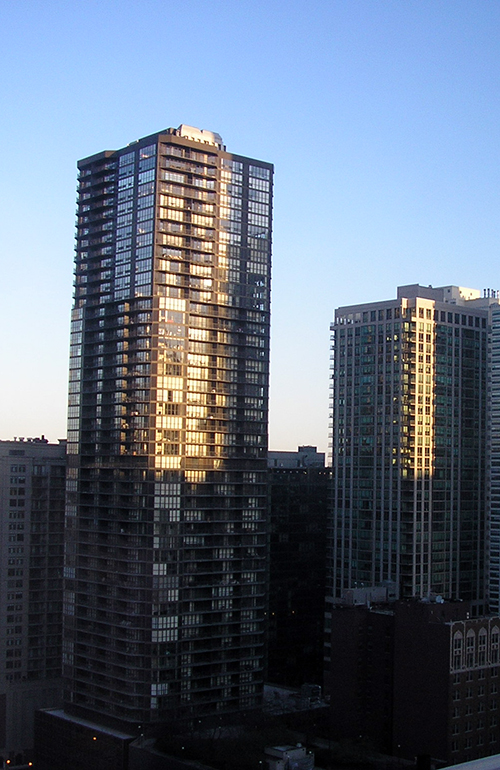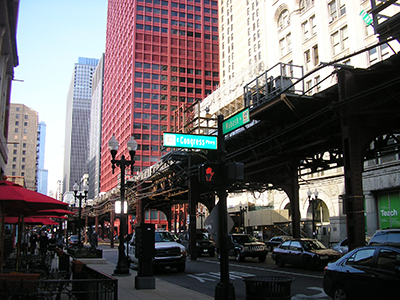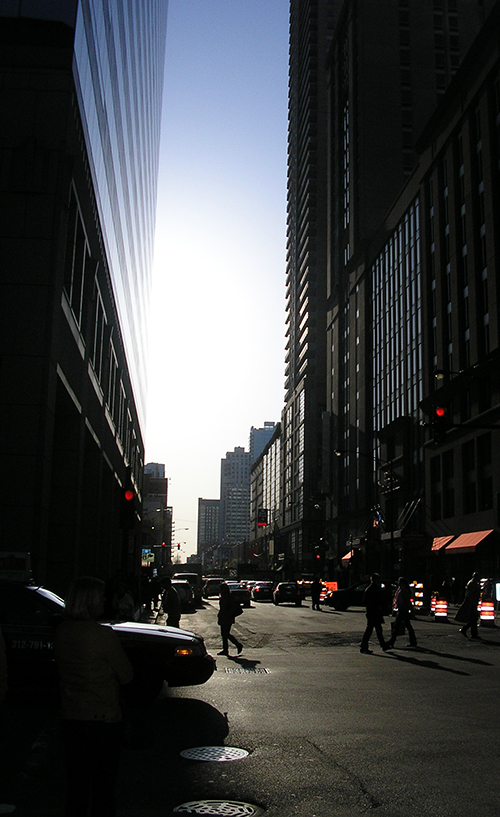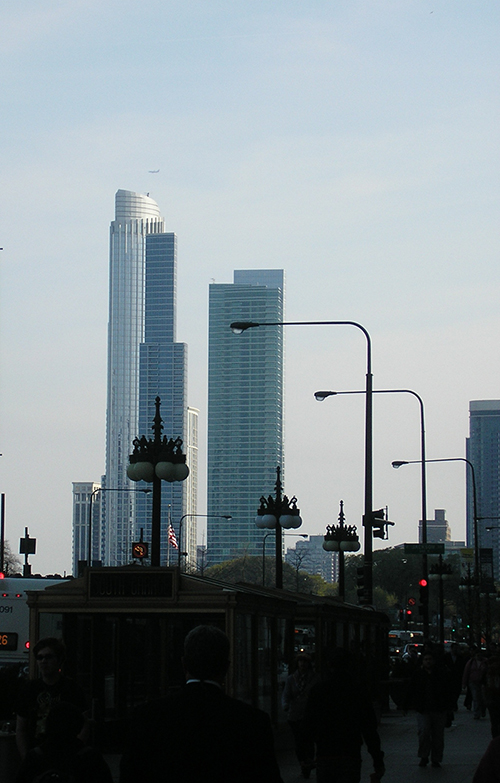 I’m a big fan of the Book of Revelation. I know a lot of people aren’t as enthusiastic about this part of the Bible, and there are lots of good reasons for this. First of all, Revelation has probably been abused more any other part of Scripture. It seems like everyone with an apocalyptic ax to grind goes immediately to Revelation and concocts an elaborate theory of the end of the world – and why those who disagree with them will face the brunt of it.
I’m a big fan of the Book of Revelation. I know a lot of people aren’t as enthusiastic about this part of the Bible, and there are lots of good reasons for this. First of all, Revelation has probably been abused more any other part of Scripture. It seems like everyone with an apocalyptic ax to grind goes immediately to Revelation and concocts an elaborate theory of the end of the world – and why those who disagree with them will face the brunt of it.
And even if we look past all the misuse of this book, the text itself is pretty bizarre. You’ve got beasts rising out of the sea, dragons fighting angels, and heavenly creatures almost beyond description. It’s easy to get so confused and bewildered that it might seem wiser just to ditch the whole thing. Better to accept that we’ll just never really understand Revelation than to try to decode all its mysterious imagery.
I know that I’m a little strange, but rather than finding Revelation’s psychedelic imagery off-putting, I am captivated by it. Even before I became a Christian, I was fascinated by the powerful images of this apocalyptic text. In terms of its beauty and dynamism, Revelation has always seemed to me nothing less than the Sistine Chapel of the Bible.
 More recently, I’ve become aware of the deep resonance between Revelation and other parts of the Bible – particularly in the Old Testament. I’m reading through the prophet Ezekiel right now, and I feel like I’m catching glimpses of Revelation at every turn. (Turns out the writers of the New Testament were pretty well-versed in the Old Testament. Go figure.)
More recently, I’ve become aware of the deep resonance between Revelation and other parts of the Bible – particularly in the Old Testament. I’m reading through the prophet Ezekiel right now, and I feel like I’m catching glimpses of Revelation at every turn. (Turns out the writers of the New Testament were pretty well-versed in the Old Testament. Go figure.)
I’d like to lift up one particular common thread I’m finding in Ezekiel: The lament for the fallen city. In the course of his prophetic ministry, Ezekiel describes how Tyre – an extremely powerful city with a vast commercial empire – would be destroyed. As part of his pronouncement, he describes how the local rulers and merchants of the coastlands are going to react to the city’s destruction:
In their wailing they raise a lamentation for you,
and lament over you:
“Who was ever destroyed like Tyre
in the midst of the sea?”
When your wares came from the seas,
you satisfied many peoples;
with your abundant wealth and merchandise
you enriched the kings of the earth.
Now you are wrecked by the seas,
in the depths of the waters;
your merchandise and all your crew
have sunk with you.
All the inhabitants of the coastlands
are appalled at you;
and their kings are horribly afraid,
their faces are convulsed.
The merchants among the peoples hiss at you;
you have come to a dreadful end
and shall be no more forever.Ezekiel 27:32-36
This passage reminds me of a similar one from Revelation, when the merchants of the earth mourn the fall of Babylon (symbolizing Rome):
Fallen, fallen is Babylon the great!
It has become a dwelling place of demons,
a haunt of every foul spirit,
a haunt of every foul bird,
a haunt of every foul and hateful beast.
For all the nations have drunk
of the wine of the wrath of her fornication,
and the kings of the earth have committed fornication with her,
and the merchants of the earth have grown rich from the power of her luxury.Revelation 18:2b-3
In both of these passages, we find a depiction of people addicted to empire. Though both Tyre and Rome were oppressive powers that crushed all opposition and imposed their will on vasts territories, those who were under their power came to rely on them. In fact, their whole way of life became dependent on the stability, luxury and entertainment that their rulers provided.
 This ancient dynamic sounds familiar. In my life today I see so many ways that I have become dependent on the very things that hold me and my community back from a more beautiful, just and loving world. Consider, for example, the innumerable aspects of my life that are dependent on the use of fossil fuels. Even though I know that the extraction and use of these resources are severely damaging to the environment and serve as a trigger for violent conflict and war, I feel unable to stop participating.
This ancient dynamic sounds familiar. In my life today I see so many ways that I have become dependent on the very things that hold me and my community back from a more beautiful, just and loving world. Consider, for example, the innumerable aspects of my life that are dependent on the use of fossil fuels. Even though I know that the extraction and use of these resources are severely damaging to the environment and serve as a trigger for violent conflict and war, I feel unable to stop participating.
Though intellectually I know that my way of life is in many ways unsustainable and harmful, I’m sure I would mourn if I could no longer fly out to see my family in Kansas. I’d raise a lament if I could no longer afford to fill up our gas tank, even though I recognize that this might be healthier for my community and the earth as a whole. Most troubling of all, this is only one area, of many in my life, where I am addicted to the very powers that oppress the earth and its people.
 The biblical witness, especially in writings like Ezekiel and Revelation, remind me of my own participation in structures and systems that do immense harm. Yet, the writers of Scripture do not leave me there. On the contrary, the writer of Revelation exhorts me to break the addiction to empire altogether: Come out of her, my people! Though it often feels impossible, I am challenged to reorient my lifestyle and become a part of a community that rejects dependency to luxury, violence and systems of oppression.
The biblical witness, especially in writings like Ezekiel and Revelation, remind me of my own participation in structures and systems that do immense harm. Yet, the writers of Scripture do not leave me there. On the contrary, the writer of Revelation exhorts me to break the addiction to empire altogether: Come out of her, my people! Though it often feels impossible, I am challenged to reorient my lifestyle and become a part of a community that rejects dependency to luxury, violence and systems of oppression.
What might this look like? Are there ways that we can reduce our reliance on the systems and powers that enslave people and tear at the Creation? Are there areas in your own life where you have become not only comfortable with, but reliant upon injustice? What might be a first step we can take together in seeking greater wholeness, justice and liberation?
“Though intellectually I know that my way of life is in many ways unsustainable and harmful, I’m sure I would mourn if I could no longer fly out to see my family in Kansas.”
You might consider switching to riding the bus, as I did fourteen years ago. It’s one of the simplest and most effective things that you and I can do to reduce our fossil fuel consumption significantly. The bus is fun. And it lets us escape the fascist paranoia of airplane terminals.
Just a suggestion.
You meet all sorts of interesting people riding the bus too! The Amish take the bus. I’ve met nuns and Hare Krishnas too.
http://en.wikipedia.org/wiki/Category:Amtrak_stations_in_Kansas
Good post Micah. I think the first step is to see this as one of the most important conversations we can have as Friends. How can we support each other to be tender to God’s leadings, when God is calling us to step out beyond what we know? The answers to me don’t seem to be individual but communal. We have to be willing to listen to each other as well as to God.
As I understand it we are trapped in the web of violence and oppression — only God can free us. As we are able to hear, we will be led, step by step, out of this empire. We are not alone in this — we are led as communities. But that only proceeds through the tenderness of each individual’s conscience to the cries of the oppressed. When we feel uncomfortable, and take that to our spiritual community, how are we met? Are others willing to sit with us in the discomfort or do we dismiss it so they don’t have to bear the difficulty of considering?
At the moment I don’t have a driving license but do ride in cars driven by others. I’m learning about how to grow some of my own food and trying to get more of the rest from ethical sources, but I will still go into a supermarket if pressed for time at the moment. I have an old mobile phone, but have not been clear to buy a new one when the last one broke — I got given someone else’s cast-off. I remember reading in ‘Laughter in Quaker Grey’ that the Victorian Friends in the UK would not take sugar in tea because at one time it only can from enslaved people’s labour; but they still used sugar for example in baking and preserving. But the symbolic action helped them focus their minds and disrupt the social assumption. I don’t know if that is a useful model for this kind of thinking.
Refusing the goodies of empire becomes more possible when it is not an individual or family quest but a community call. We can withdraw from using mobile phones for example, because of the injustice in their manufacture, if the people we depend on directly are willing, and if those who depend on us are able, to go on that journey with us. When we step out of line with consumer culture there’s a torrent of contempt that pours down on us. We can weather that if our identity is secure in God’s love, and for most of us, only if we are being encouraged in preferring what we can guess of God’s will to the wider culture’s approval.
Thanks for the prophetic word, Micah. As I mentioned on your FB announcement, I’ve been making my own way through Ezekiel, and can’t help but notice the text you cite about Tyre is followed somewhat closely by the “watchman” passage (33:1-9) which makes the point that someone who sees a threat coming has an obligation to warn others – lest they be held responsible for their blood.
So what do we do with this stuff? It’s very uncomfortable, since there’s a pretty strong taboo in many circles about saying “Look folks: We are Tyre. We are Babylon. We are Rome. We are going down.”
Adding to the discomfort is the scene in Revelation immediately following Babylon’s fall, in which heaven shouts “hallelujah” at our suffering. (Rev 18:20-19:10). So are we to stand by and gloat? Rationalize our way through the suffering with piety and humble sacrifice?
I don’t think so. The first followers of the Way of Jesus engaged in a radical restructuring of their economic lives within the context of the imperial economy that exploited and divided them, with good results (admittedly temporary).
I sense that we need to be working now to create alternative means of economic activity, all the way down to the inner workings of money. I’m currently wrestling with whether creating alternative currencies of some sort is consistent with a “gift economy.” I don’t think that barter is a good end destination, but it might be a key step along the way. And it is achievable now, and a proven model for getting folks through financial crises like those that are likely to intensify as the Empire unravels.